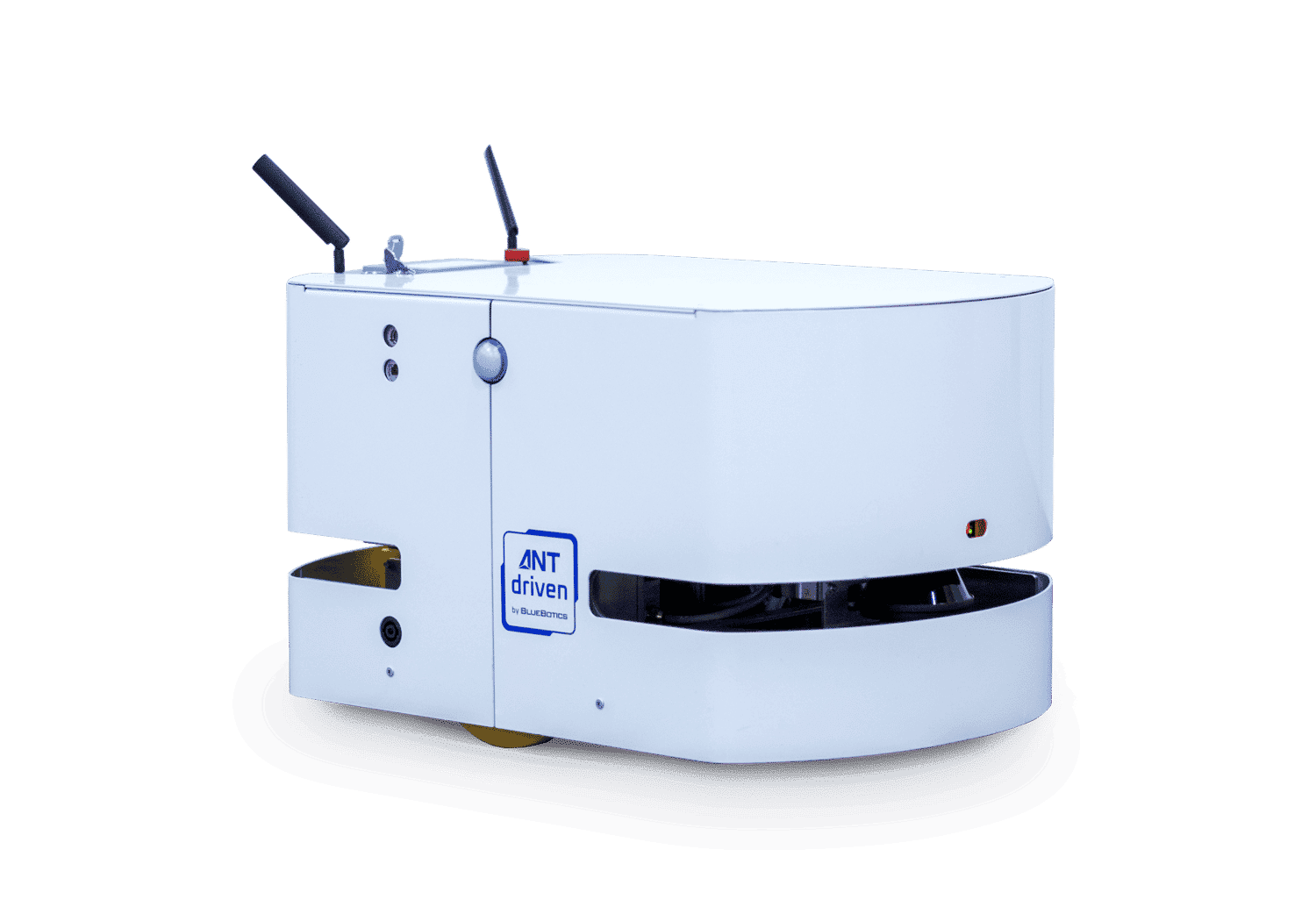10 Thinkers on the Future of Automation
We know that in the coming years, automation will influence every part of our lives: from work and school, to leisure and family. But what will this automated future look like?
To zoom in on the future of automation, we’re sharing a collection of pieces from contemporary writers, thinkers and business leaders.
The Future is Both Automated and Intelligent
In this article, Samiran Ghosh argues that “Intelligent automation backed by robotics, AI and business process management creates smarter business processes and workflows that can incrementally think, learn and adapt as they go — for instance, processing millions of documents and applications in a day, finding errors and suggesting fixes or recommendations.” IA will enable “knowledge work” to be automated – in a way which was once thought impossible.”
IA means better roles, the elimination of laborious tasks and improvements in employee well-being.
This version of the automated future may already be here: Ghosh states that more than 50% of the world’s largest companies have adopted some version of IA. But he says, “while it will cause role changes, it doesn’t necessarily mean job losses… IA will automate many white-collar jobs that are tedious and tiring. A recent IBM report shows that 90% of executives in firms where IA is being used believe it creates higher-value work for employees.”
The Real Story of Automation Beginning with One Simple Chart
The author takes an arresting chart as a jumping off point to discuss the future of automation:
“As the number of oil rigs declined due to falling oil prices, so did the number of workers the oil industry employed. But when the number of oil rigs began to rebound, the number of workers employed didn’t.”

He continues: “Automation has been happening right under everyone’s noses, but people are only beginning to really talk about the potential future dangers of automation reducing the incomes of large percentages of the population. In the US, the most cited estimate is the loss of half of all existing jobs by the early 2030s. It’s great that this conversation is finally beginning, but most people have no idea that it’s already happening. And about half of those people who know it’s happening, are relying on magical thinking to support their beliefs that automation is of no concern. To the contrary, it is of massive concern… the discussion is framed as a future danger to our social fabric instead of a clear and present danger.”
The Age Of Automation Is Now: Here’s How To ‘Futureproof’ Yourself
“[Automation] could help us cure rare diseases. It could help us fix the climate crisis. It could do any number of amazing things that we really, really need,” says author and New York Times tech columnist Kevin Roose in an interview with NPR.
But, he adds, “We need to prepare for the possibility that a lot of people are going to fall through the cracks of this technological transformation. It’s happened during every technological transformation we’ve ever had, and it’s going to happen this time. And in fact, it already is happening.”
Roose lays out a way to “futureproof” yourself in the age of automation, and lays out three categories of work that he thinks will not be automated anytime soon.
The Jobs We’ll Lose to Machines — And the Ones We Won’t
Not every job can be automated. In a recent TED Talk, machine learning expert Anthony Goldbloom examines the future of automation in the world of work.
“The future state of any single job lies in the answer to a single question: To what extent is that job reducible to frequent, high-volume tasks, and to what extent does it involve tackling novel situations? On frequent, high-volume tasks, machines are getting smarter and smarter. Today they grade essays. They diagnose certain diseases. Over coming years, they’re going to conduct our audits, and they’re going to read boilerplate from legal contracts. Accountants and lawyers are still needed. They’re going to be needed for complex tax structuring, for pathbreaking litigation. But machines will shrink their ranks and make these jobs harder to come by.”
Why There Won’t Be A Robot Uprising Any Time Soon
There’s a big gap between the robots of popular imagination (such as Star Wars’ R2D2), and the robots at work today (such as a Roomba), say Ruth Aylett and Patricia Vargas, authors of Living with Robots. They explain: “This gap has a big impact on how we see robots in our future. The robots of the imagination will take everyone’s jobs in the next fifteen years or even worse, enslave and then replace humanity. But those of us that work with real robots see a very different future.”

Robots are only as intelligent as the humans who create and run them, say Aylett and Vargas. So, while there’s no need to worry about a robot uprising, some vigilance is needed: “It is up to us all, scientists, citizens, policy-makers, to insist that we do not use robot systems as an excuse for actions that cannot be justified in human terms.”
We Are All Creatives: A Manifesto of Humanity in the Age of Automation
Mike Sturm picks up the theme of mass job loss in an automated future, but argues that humanity’s innate creativity will allow us to not just survive, but thrive, in an automated future. He writes:
“It used to be that reason was the uniquely human trait. It was what separated us from the other complex organisms. Since the advent of sophisticated computers, that trait seems to have been perfected by the machines. With computers being able to “think through” problems and solve them, reasoning has become the arena in which humans consistently come in second place.
We humble humans may be slowed down by tricky syllogisms, but only we can make up ideas from whole cloth. Only we can throw off the shackles of established thought.
“That means that it is not rationality — logical thinking — but creative thinking where humans have the edge. We humble humans may be slowed down by tricky syllogisms, but only we can make up ideas from whole cloth. Only we can throw off the shackles of established thought.
“… So take the mundane job that automation might threaten, and ask what illogical and emotive tasks can be built-in. Ask what personal and emotional connections there are that can provide better interactions between people, better collaboration, and spontaneous advancement. They are there — you just have to think creatively.”
Why You Should Treat the Tech You Use at Work Like a Colleague
Technology is an investment – just like the people in your business. Nadjia Yousif makes the case for treating technology less like a tool and more like a part of the team.
She explains: “Imagine a company hires a new employee, best in the business, who’s on a multimillion-dollar contract. Now imagine that whenever this employee went to go meet with her team members, the appointments were ignored or dismissed, and in the meetings that did happen, she was yelled at or kicked out after a few minutes. So after a while, she just went quietly back to her desk, sat there with none of her skills being put to use, of course, being ignored by most people, and of course, still getting paid millions of dollars. This hotshot employee who can’t seem to catch a break is that company’s technology.”
Why Taxing Robots Is Not The Way To Go
If we treat technology like a team member, should that extend to taxes too? Nicola Tomatis, the CEO of BlueBotics, argues that taxing robots is not the way to go:
“This approach would work if robots were being deployed solely in order to boost profits by cutting costs (which, by the way, would increase what a company pays in profit taxes). And if outside international competitive pressures didn’t exist.
“However, this is rarely the case. Most often, robots are instead taking over repetitive or dangerous human tasks because an organization must improve its performance — in other words its productivity — in order to remain competitive.”
Automation is Making Us Dumber… and That’s a Good Thing
Ben Noble makes the point that losing skills to automation has always been a very real fear… and that’s a good thing. He writes:
“We’ve always been sacrificing our skills to the altar of new technology. In 10,000 BC, we became worse at hunting because we discovered agriculture. In 1917, we became worse at hand-washing clothes, because the washing machine took over. We’ve all made peace with all that.”
When we don’t spend every waking minute trying to find our next meal or a safe place to sleep, we have the freedom to be creative.
“Why? Because when machines wash our clothes, when only 3% of the population can sustain an entire country with their crops, the rest of us have the time to pursue our own passions. When we don’t spend every waking minute trying to find our next meal or a safe place to sleep, we have the freedom to be creative. Like Maslow’s Hierarchy of Needs, the less we have to worry about, the better (and more creative, and more fulfilling) our lives will be.”
How to Live With Robots
In this TED Talk, chess champion Garry Kasparov reflects on his famous loss to IBM supercomputer Deep Blue in 1997 – and suggests a future where we live happily with robots.
“Soon, machines will be taxi drivers and doctors and professors, but will they be “intelligent?” I would rather leave these definitions to the philosophers and to the dictionary. What really matters is how we humans feel about living and working with these machines.”
“… It turned out that the world of chess still wanted to have a human chess champion. And even today, when a free chess app on the latest mobile phone is stronger than Deep Blue, people are still playing chess, even more than ever before.”
Follow us for more stories
Enjoyed these pieces? Follow us on LinkedIn, Twitter or Facebook where we regularly share stories like these.

Let's get Started
Take the first step to automating your vehicle.
Schedule a call with our expert team today.